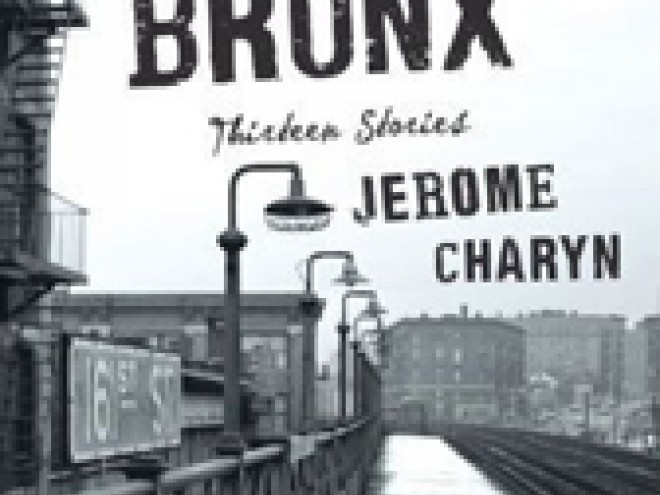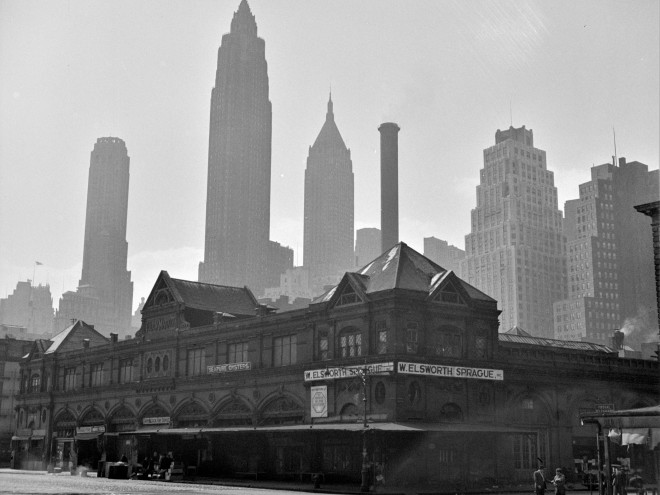Earlier this week, Jerome Charyn wrote about growing up Jewish in the Bronx. He is the author of the recently published short story collection Bitter Bronx and will be blogging here all week for Jewish Book Council’s Visiting Scribe series.
Sometimes it felt like the end of the line. There was no place to go beyond the East Bronx; you couldn’t even drown yourself in the shallow waters of the Bronx River; you had to learn to survive on your own prowess.
I sort of lived in a comic book universe, because I was surrounded by maniacs and misfits — egg candlers who had lost the art of candling and lived out their days mumbling to themselves; Jewish baseball prodigies who had spent a month or so in the minor leagues years and years ago and still walked around with a baseball glove; victims of polio ‑beautiful girls — who would do entrechats in the street and stumble all over themselves, dreaming of a lost career …
This was my Bronx. Violence was the key to everything. Violence could erupt at any second; I would have ten fights every morning on my way to school. I threw someone off the roof once to save my own skin; I watched him plunge from one clothesline to the next like a boy on a trampoline. I might have killed him, but he landed in a great knot of laundry. I didn’t rejoice. That’s how it was living around defeated people.

Bronx, New York. 1947. Photo via Andy Blair.
I was only able to survive because my older brother — Harvey Philip Charyn — was feared in the neighborhood. He would later become a homicide detective, an expert on the Mafia. A tough guy once put a gun to Harvey’s head, and my brother didn’t panic. He clutched the barrel in his hand, and whoever was trying to kill him couldn’t pull the trigger. There was no point in fighting with Harvey, because in the end you were going to lose.
This kind of chaos was a tremendous advantage, because it allowed me to see things that other kids didn’t see. I’m used to chaos. I know how to dance with it, how to make love to chaos.
The only way I could survive the barren landscape of the Bronx was with words, and I had to teach myself. Language has always been a kind of weapon — a sword — and you’re constantly scratching at things. Those scratches provide the rhythm for a writer, a fundamental music. And once you find the music — pull it right out of the chaos — language comes alive. Something within your soul urges you on, and you bounce from here to there. Your life becomes a series of picaresque adventures as you move from catastrophe to catastrophe, hoping that you’ll be able to climb out of it. That’s the only way I know how to write. Otherwise I would have become a crazy egg candler, mumbling to myself until the day I died.
Jerome Charyn’s stories have appeared in The Atlantic, Paris Review, American Scholar, Epoch, Narrative, Ellery Queen, and other magazines. His most recent books include Bitter Bronx and I Am Abraham. He lived for many years in Paris and currently resides in Manhattan. Read more about him here.
Related Content:
- The Iron Will of Shoeshine Cats by Hesh Kestin
- I Pity the Poor Immigrant by Zachary Lazar
- The Bookie’s Son by Andrew Goldstein
Jerome Charyn is the author of more than fifty works of fiction and nonfiction, including Ravage & Son; Sergeant Salinger; Cesare: A Novel of War-Torn Berlin; In the Shadow of King Saul: Essays on Silence and Song; Jerzy: A Novel; and A Loaded Gun: Emily Dickinson for the 21st Century. Among other honors, his work has been longlisted for the PEN Award for Biography, shortlisted for the Phi Beta Kappa Christian Gauss Award, and selected as a finalist for the Firecracker Award and PEN/Faulkner Award for Fiction. Charyn has also been named a Commander of Arts and Letters by the French Minister of Culture and received a Guggenheim Fellowship and the Rosenthal Family Foundation Award for Fiction from the American Academy of Arts and Letters. He lives in New York.


